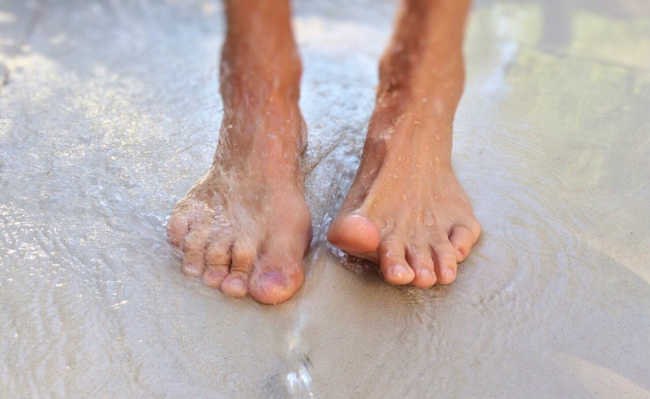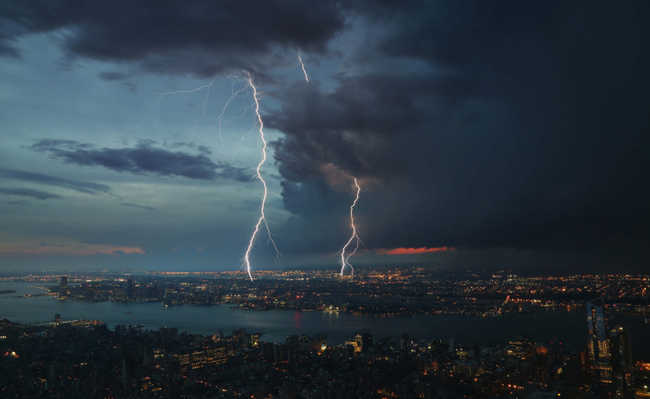Global climate could have alarming conditions in the future, says UN report
Intergovernmental Panel on Climate Change (IPCC) presented the first part of the report in Sweden

Climate changes intensify and point to a worrying picture for governments around the world, according to the fifth IPCC report, presented on September 27, 2013, in Stockholm, Sweden. The study was based on thousands of surveys conducted over the past five years.
"It is up to all sectors of society, including current governments, to act on the facts and in response to the science presented in this report, which has gone through an unprecedentedly rigorous review process," said Stephan Singer, global director of energy policy at WWF network.
Scientists have projected four different greenhouse gas concentration scenarios to happen by 2100. In English, this projection is known as the Representative Concentration Pathways (RCPs). To build these simulations, two “ingredients” are needed: a climate model and a hypothesis about CO2 emissions, according to Paulo Artaxo, a physics professor at USP who participated in the preparation of the report.
A big difference between the fourth report and this one is the presence of the impact on the radiation of the emitted gases, according to Artaxo. The radiation balance concerns the solar energy that enters and leaves the planet.
four possibilities
Among the four scenarios developed by the report, the most optimistic predicts an increase of 2.6 watts stored per square meter (W/m²); the temperature would rise between 0.3°C and 1.7°C and the sea level would rise between 26 cm and 55 cm. In the second scenario, the storage would be 4.5W/m² and the temperature would increase between 1.1°C and 2.6°C, and the sea rise would be between 32 cm and 63 cm. In the third case, 6.0W/m² would be stored, the temperature would rise between 1.4°C and 3.1°C and the elevation would be in the range between 33 cm and 63. In the worst case, the stored energy would be 8, 5W/m², the temperature increase would be between 2.6°C and 4.8°C and the sea level would rise between 45 cm and 82 cm.
The increase in CO2 emissions is linked to the burning of fuels and deforestation, with methane, nitrous oxide and CO2 having the highest rates in the last 22 years. “We cannot ignore the reality that we need to act or else we will have to face frightening impacts. We know that most of the greenhouse gas emissions that cause global warming come from burning fossil fuels,” said Samantha Smith, leader of the WWF Global Climate and Energy Initiative.
Impacts on the ocean
In all scenarios, there is a 90% probability that the water levels will rise, this result is mainly due to the increase in ocean temperature and the melting of glaciers. One of the serious consequences of this development is the lower capacity of the ocean to absorb CO2, which leaves even more pollution in the atmosphere. Acidity should also increase, with 99% certainty, with a pH drop between 0.30 and 0.32.
Impacts on the ocean are of great concern because more than a billion people depend on it for food and survival. Since 1900, the increase in acidity has been 30%, perhaps the largest in millions of years. These changes threaten fish, corals and have a direct impact on the entire marine biome.
insistent unwanted partner
The effects of pollution are expected to continue to be felt for many generations, according to the report presented. CO2, for example, must maintain a high concentration for over a thousand years, because the exit of this gas from the atmosphere is slow.
Projection in Brazil
The Brazilian Panel on Climate Change (PBMC) recently reported, on September 9, the results of its first National Assessment Report (RAN1), prepared in a similar way to the IPCC report.
According to the study, Brazil will have a temperature increase of between 1°C and 6°C by 2100. Rains will fall more frequently in the south and southeast and will be scarcer in the north, northeast and center of the country.
To learn more about the report, click here.








